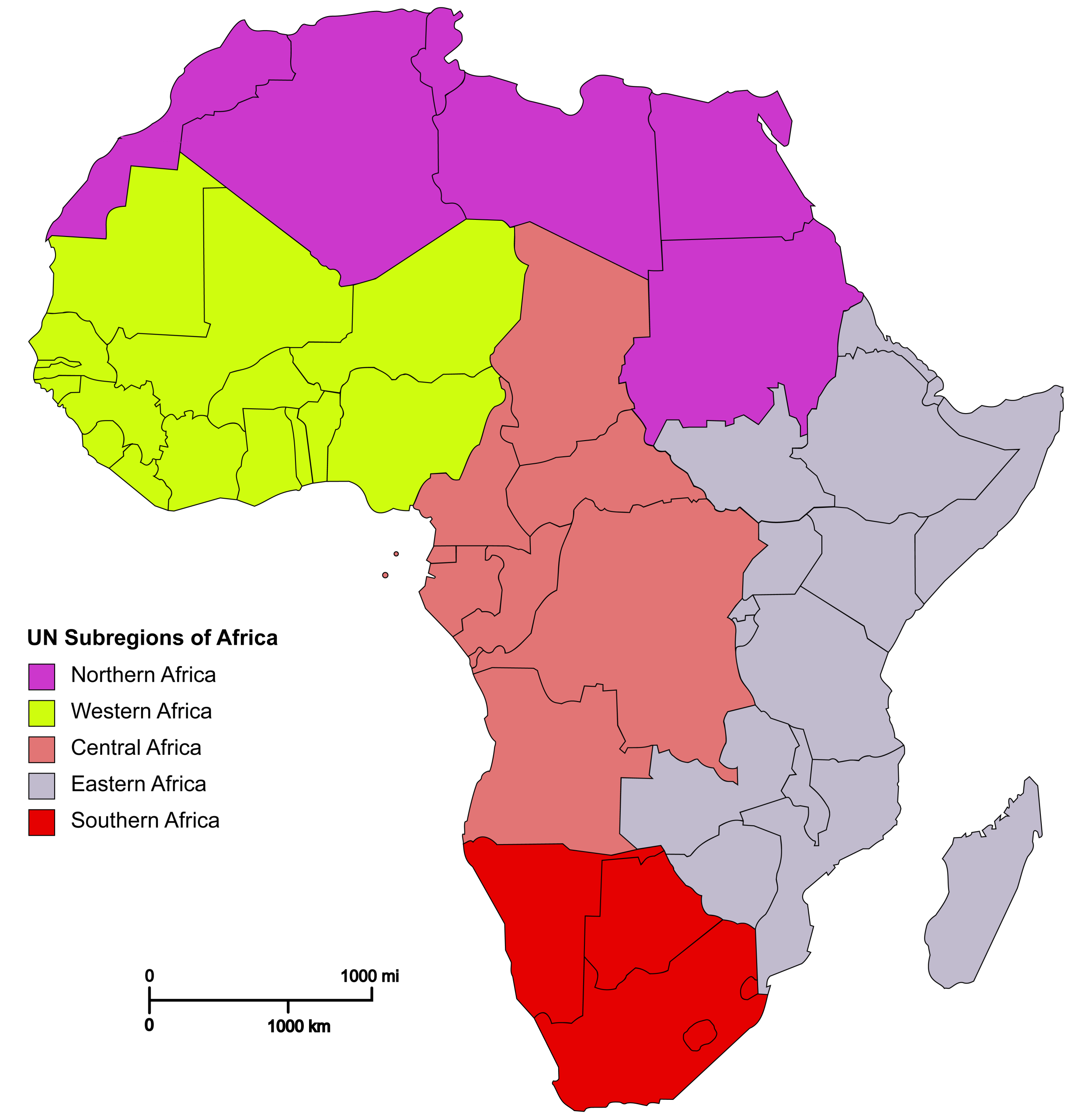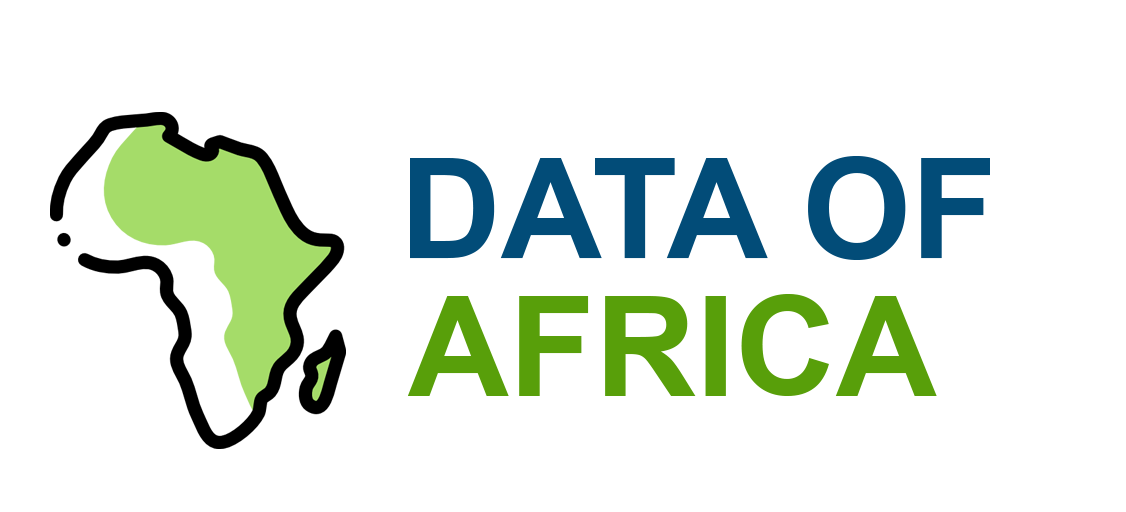The 2030 FIFA World Cup is the 24th edition of the men’s FIFA World Cup, a competition organized by FIFA and which brings together the best national teams.
It will take place in Spain, Morocco and Portugal, whose joint bid was the only one in the running, according to a FIFA press release published in October 2023, although the official decision will not be ratified until the end of 2024, following a vote by the congress.
AFRICA : FACTS, CHALLENGES AND PROSPECTS
Preamble
Africa stands out from other continents by its particular context marked by the following main characteristics :
- Very heterogeneous continent (United Nations: 54 countries)
- Recent independence acquired barely 60-70 years ago
- Border issues resulting from colonization
- Slavery, occupation and loss of self-confidence
- Some infrastructure but few qualified human resources (illiteracy)
- The values of the Economy belong mainly to Europe
- Some countries have no sovereignty over their currency
- Development assistance programs
- Standing in assisted posture
- Cycle of political instabilities, conflicts and bad governance
The last 20 years have seen significant growth, much better governance and human resources, but inclusive and distributive economies remain necessary.
A new era is dawning for Africa but several challenges must be met.
Africa’s challenges
- Better take advantage of abundant natural resources
- Control demography
- Develop its infrastructure and generalize access to electricity and drinking water
- Develop a better health system
- Boost its economy
- Better investment in education, science, and technology
Facts by data
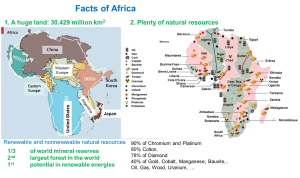
Average age in 2022 :
- 18.8 in Africa
- 30.1 in the rest of the world
- 42.4 in Europe
- UN. Source: Statista (2022)
Threat
Diseases and devastating epidemics persist :
- Ebola
- HIV/AIDS
- Malaria
- Tuberculosis
- Meningitis
An increase in non-communicable diseases :
- Cardiovascular
- Cancers
African economies are not diversified
Very strong dependence on natural resources : 50-93%
Only four countries have an economic diversification index higher than the world average
1. South Africa
2. Egypt
3. Morocco
4. TunisiaSource: United Nations African Development Report (2022)
Threats and challenges for development
Economic challenges :
- The stability of countries is obligatory (no development without stability)
- Only a fifth of Africans work in a wage economy.
- Significant informal sector (must be included in the formal sector)
- 80% of the African economy is agrarian (need for industry)
- Infrastructure (roads, schools & universities, hospitals, etc.)
- Access to electricity and drinking water…)
- Translate growth into poverty reduction and improved well-being of the population
- Demographic control
- Change: from the extractive economy to a transformative economy
- The economy must be oriented towards local needs
- Regional and continental integration
Two major priorities :
1. Investing in its Youth (Education/Science) and its Infrastructure
2. Improve its Governance
10 scientific challenges for development
1. New resilient agriculture (combining AI, biotechnology and agriculture)
2. Food industry
3. Fertilizers (South-South collaboration)
4. Health Sciences
5. Water-energy-agriculture link
6. Water management and desalination combined with solar energy
7. Industry (Chemistry, Metallurgy, Mechanics, Electrical, IT, etc.)
8. Health economics (Medicine…)
9. Transforming the extractive economy into value-added products
10. Need for an African strategy for IT, AI, cybersecurity and defense
ASRIC : Must be given the necessary means to fully play its role as lever and engine to stimulate STI and STEM in Africa
Some perspectives
- African Continental Free Trade Area (AfCFTA)
- Great Green Wall Initiative
- African Union’s Agenda 2063
- Africa Renewable Energy Initiative (AREI)
- African Development Bank’s High 5 Agenda
- Blue Economy
- African Pharmaceutical Industry Development
- African Union’s Peace and Security Architecture
Conclusion
- Africans must believe in their abilities and rely on themselves
- Investing in HR (Youth)
- Investing in infrastructure, education and research-innovation
- Technological sovereignty (vaccines, drugs, medical devices, food safety, AI, water, energy, industry & new technologies, etc.)
- Shifting to a transformative economy
- Intra-African geopolitical and economic integration (coordinated efforts in the areas of economy, geopolitics, diplomacy and defense).
- Diversify international partnerships, but watch out for predators
- Better governance and inclusive development (Women, youth, remote areas) and distribution of wealth
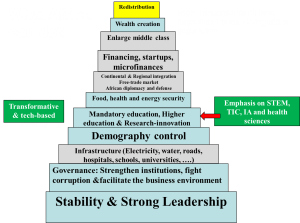
MAJOR PROJECTS IN AFRICA
FIFA World Cup 2030
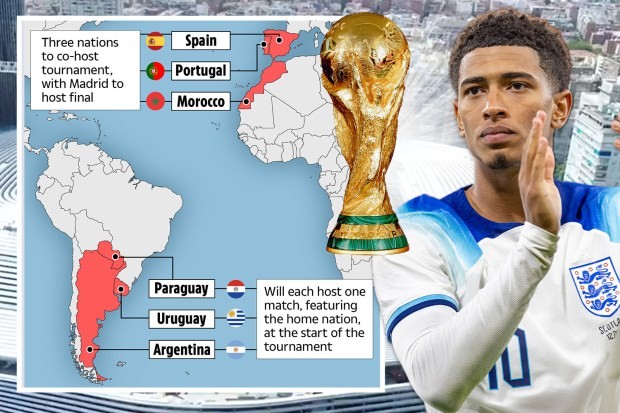
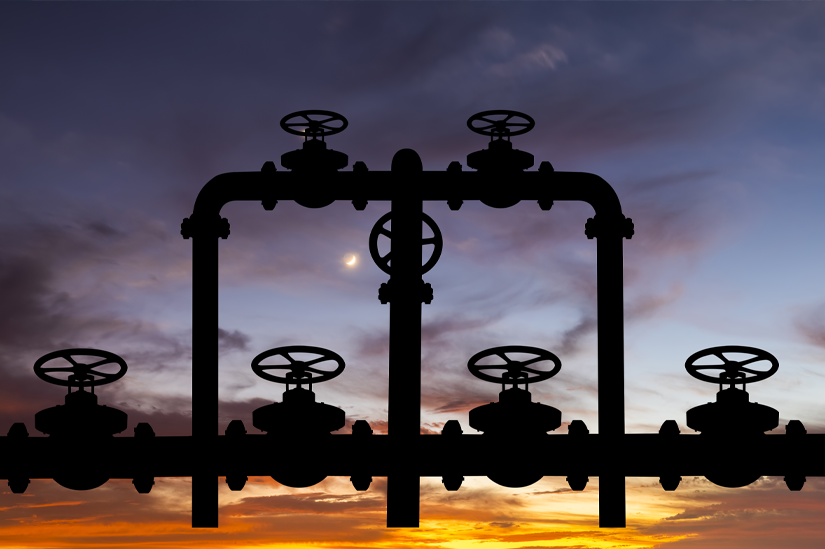
Africa Atlantic Gas Pipeline
The Africa-Atlantic gas pipeline is a gas pipeline project supported in particular by Morocco. It competes with the trans-Saharan gas pipeline project supported by Algeria. Both aim to open new markets for Nigerian gas.
The Moroccan project is to build an underwater gas pipeline bypassing the west coast of Africa, initially following the route of the West African gas pipeline, but with a much greater capacity than it.
Atlantic Initiative for the Sahel
The Atlantic Initiative for the Sahel countries represents the royal vision of King Mohammed VI to strengthen the access of Sahelian nations to the Atlantic Ocean, with the aim of making Africa a prosperous continent, thus realizing South-South cooperation based on a win-win partnership.
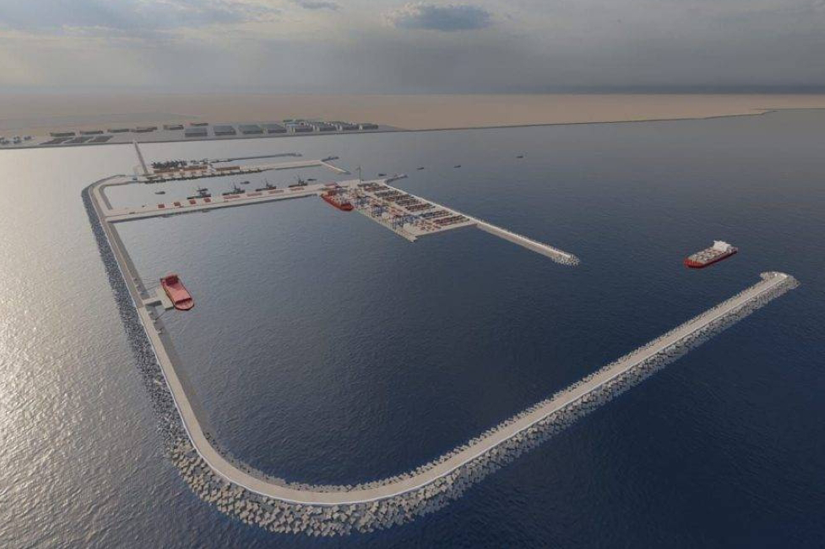
MAPS OF AFRICA
